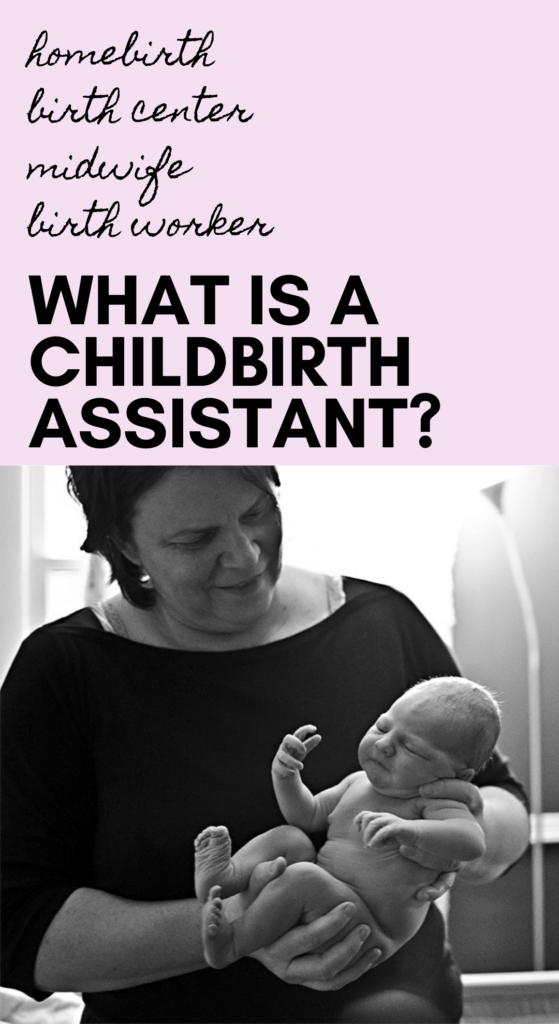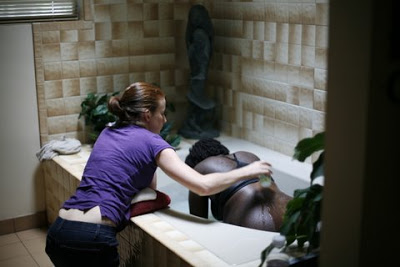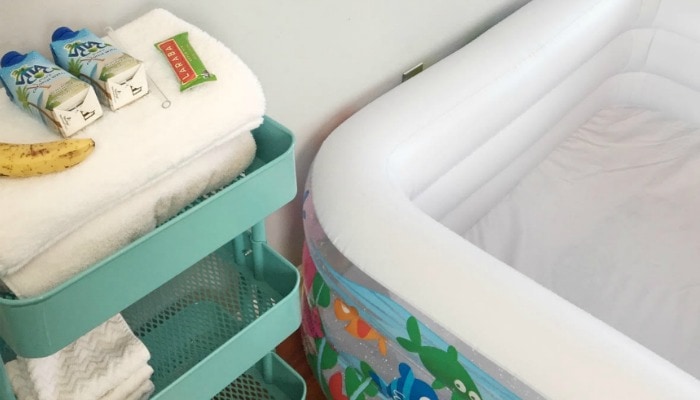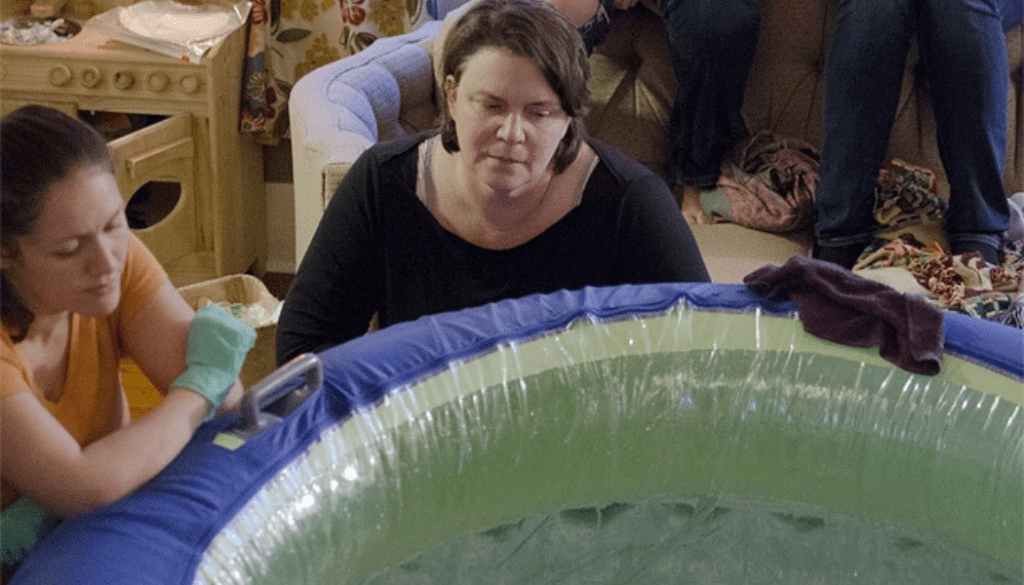A childbirth assistant, more commonly known as a birth assistant (BA), attends out of hospital births with a licensed midwife at freestanding birth centers and homebirths. The role of a midwife’s assistant isn’t glamorous, as she’s often the one cleaning up bodily fluids 😉, but very rewarding for someone that loves the world of natural childbirth and out of hospital birth.
This post is for parents wondering what a childbirth assistant is and if they should expect one at their birth, but also for those wanting to explore birth assistant as a career.
On This Page
5 minute read
↓What is a Childbirth Assistant?
↓Childbirth Assistant Job Description
↓Birth Assistant Salary
↓Birth Attendant vs. Midwife
↓Childbirth Assistant vs Doula
↓Midwifery Student vs Childbirth Assistant
↓How to Become a Birth Assistant
↓Childbirth Assistant Training

What is a Childbirth Assistant?
Childbirth assistants can also be called a birth assistant, midwifery assistant, midwife’s assistant, and birth attendant. Childbirth assistants are trained professionals that assist a midwife during the late stages of active labor, pushing, and immediate postpartum. Birth assistants are sometimes doulas, childbirth educators, and nurses, but don’t have to be.
Some birth assistants also help midwives during their clinic, prenatal, and postpartum visits AND attend births, but most just attend births.

Childbirth Assistant Job Description
A birth assistant adheres to a call schedule, and needs to be ready to go at a moments notice. This is a big part of birth work and should be considered carefully before becoming a birth worker. Being on call over a long period of time is very challenging.
The following are some of a midwife’s assistant responsibilities:
- Set up birthing supplies and equipment
- Charting labor progress, especially at the moment of birth when the midwife is busy
- Cleaning, managing bodily fluids, and keeping the birthing space organized
- Handing midwife equipment and supplies, preferably before she asks for it 😉
- Making sure everyone stays fed and hydrated, especially the midwife
- Assist with breastfeeding, helping mom in and out of the shower, changing the bedding
- Start and treat laundry and taking out the trash
- Assist with and chart postpartum vitals for both mom and baby
- Drain birth tub
- Cleaning and packing equipment to leave

Birth Assistant Salary
The amount of money a birth assistant makes varies by location and practice. A midwife’s assistant is typically paid a flat fee for each birth, usually around $200-$250. This birth assistant job posting in Eugene, OR pays a minimum of $200 per birth and $25 per hour after 8 hours (posted in 2021).
Birth Attendant vs. Midwife
A midwife is a trained licensed medical professional providing prenatal, birth, and postpartum care to low-risk expecting parents. A midwife employing birth assistants typically attends out of hospital births at home and freestanding birth centers, and does not have hospital privileges.
A birth attendant has no prior relationship to the laboring woman and meets her for the first time late in labor, close to the time of pushing. On the other hand, a midwife, meets parents in the first trimester and has developed a relationship over many prenatal visits.
A midwife is responsible for providing a safe and satisfying birth for the mother and baby, whereas a childbirth assistant is responsible for helping the midwife do her job. A midwife is the primary care provider for the birthing woman and her baby, and the birth assistant supports her in that role.

Childbirth Assistant vs Doula
A childbirth assistant is not a doula. A doula provides continuous non-medical physical, informational, and emotional support to their clients, and develops a relationship with parents prior to birth. A childbirth assistant typically has doula training, but no prior relationship with the parents, and her main job function goes beyond the scope of a doula. A birth assistant sometimes uses her doula skills with a laboring woman, but a doula is never assisting the midwife.
It’s important for parents to understand that a midwife’s birth assistant will not be their doula. If parents are hoping for continuous emotional, physical, and informational support, they should consider hiring a doula of their own.

Midwifery Student vs Childbirth Assistant
Midwives sometimes have students apprenticing or precepting with them as a part of their education and training. In many ways, a midwifery student performs similar functions as a childbirth assistant. In fact, if a midwife has a student, she may decide to not hire a birth assistant at all. However, a midwifery student’s eventual goal is to manage a birth by themselves. A midwifery student catches babies, but the childbirth assistant does not. A birth assistant will sometimes assist both the midwife and the midwifery student, depending on what’s happening at the birth.


How to Become a Birth Assistant
To see if someone is a good fit to be a birth assistant, I recommend connecting with local midwives. Not sure where to start? A quick google search for a licensed midwife (LM), certified professional midwife (CPM), or homebirth midwife “near me” show midwives in any particular area. Doulas, the concierge of birth, are also an excellent way to get a better understanding of the birthing community. Doulas know things!

Childbirth Assistant Training
Most birthing assistant skills develop over time through on-the-job training. However, prior to attending births, assistants may take courses similar to the following:
- Integrative Resuscitation of the Newborn (IRN) (The IRN course with Karen Strange is specifically written for the out of hospital setting. I took this course and loved it! If you don’t need the NRP card but just the skills, you can take Karen Strange’s IRN class on Teachable.)
- DONA doula training
- A birth assistant training taught by a nearby midwife or birth center

What Makes a Good Birth Assistant?
Besides dedication to women in the childbearing year, a good birth assistant is also someone that can handle the on-call life, is teachable, intuitive, a good communicator, a quick learner, adaptable, and reliable.
What do you think? What makes a good childbirth assistant? Drop a comment and get the conversation going!
